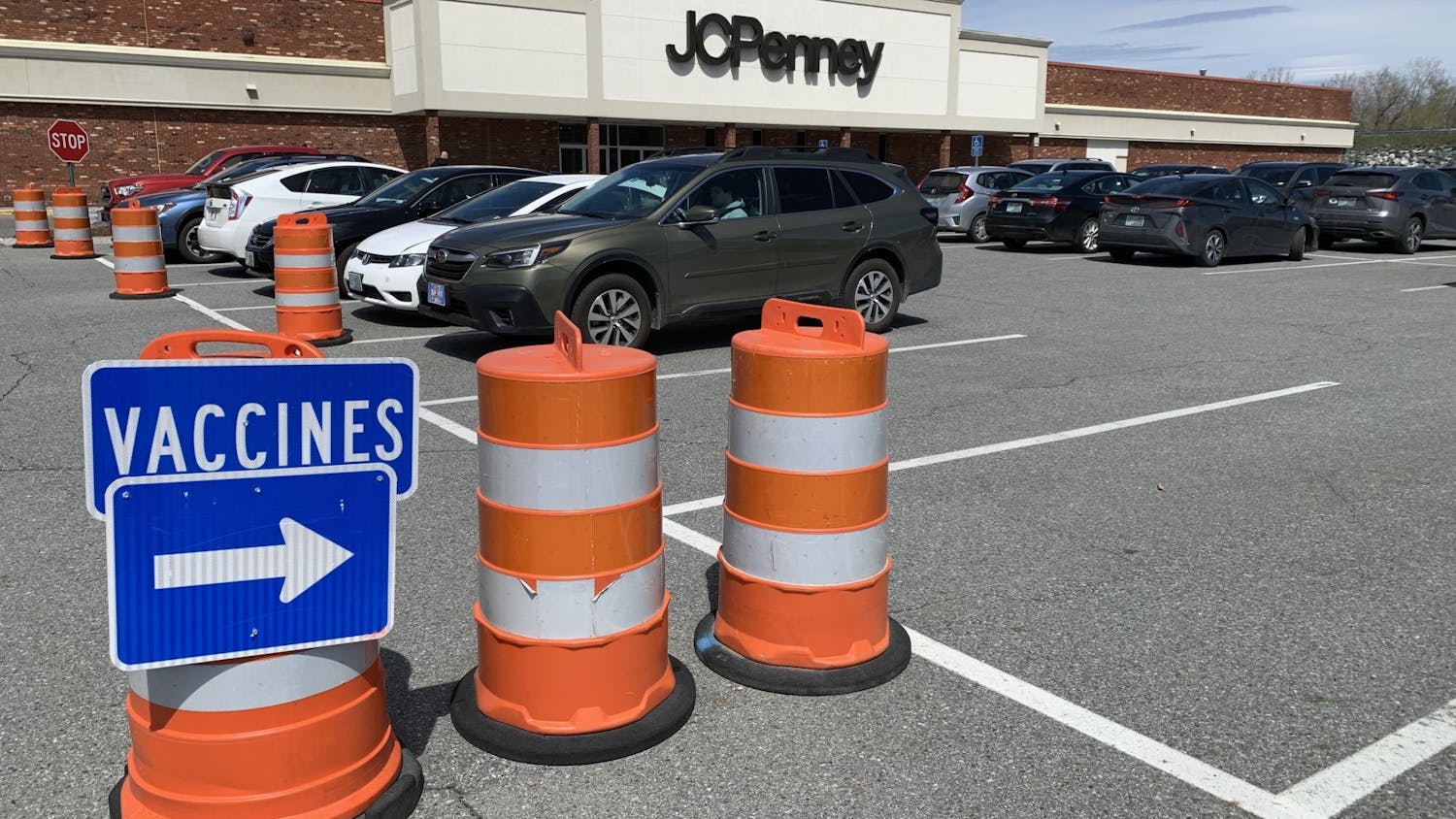This column is featured in the 2021 Spring special issue.
Last Thursday, the Centers for Disease Control and Prevention announced that fully vaccinated individuals can safely resume most activities without the need for a mask. In an email that came just minutes before the CDC’s announcement, however, Dartmouth’s COVID-19 task force detailed the College’s plan to keep in place its mask mandate and many other social distancing requirements through at least August 1st — the date that the College plans to return campus to “full access.” The Town of Hanover, meanwhile, has kept in place its own mask requirement and has no timeline for its end. The policies of both the College and the Town are now definitively behind the science; in line with the CDC’s new recommendations, it’s time to relax pandemic restrictions for the fully vaccinated — beginning with ending the outdoor mask mandate.
The CDC’s newly released policies are a welcome step toward normalcy, grounded in solid scientific evidence that full vaccination significantly reduces transmission of the virus. While it was always known that vaccines dramatically reduced viral infections among those vaccinated, we now also have strong evidence that vaccination significantly reduces the likelihood that an individual will spread COVID-19 to those not yet immunized. Preventing transmission is the primary purpose of a mask and, particularly given the risk of asymptomatic transmission, universal masking was a sound policy that saved lives. But in the vaccine, we now have another, more effective way to prevent individuals from spreading the virus to others — eliminating the rationale behind strict masking regimens for vaccinated people, as the CDC has recognized.
Despite the CDC’s announcement, leaders of Dartmouth and Hanover seem not to be responding to the clear, scientifically-backed guidelines the agency has released in recent weeks. While the College may have been caught off guard by the CDC’s sudden shift in policy on indoor masks, Dartmouth’s latest decision to continue its mask mandate in all campus spaces, indoor and outdoor, came more than two weeks after the CDC ceased recommending outdoor masking for vaccinated individuals. Over this past week, states, towns and businesses across the country have to varying degrees moved to implement the new indoor mask guidance, but Hanover and Dartmouth are a whole step behind. This is surprising, as both the town and Dartmouth had no problems following the science earlier on in the pandemic — in fact, the town’s mask ordinance directly references the CDC’s earlier mask guidelines in one of its first clauses. Yet, according to town manager Julia Griffin, instead of adjusting its policies in accordance with the CDC’s new guidance, Hanover is choosing to “err on the side of caution” while vaccination rates in the region remain below 70%.
Though Griffin points to the current vaccination rate as a reason to maintain restrictions, the high rate of vaccination in the Upper Valley should be seen as cause for optimism and reduced restrictions. In Grafton County, on the New Hampshire side of the border, at least 51% of adults are fully vaccinated, according to data from The New York Times. While Vermont has no county-level data, 49% of the state’s entire population — not just those above 18 — is fully vaccinated. Vermont and New Hampshire also lead the country in terms of their share of total population with first doses, sitting at No. 1 and No. 4, respectively. If the CDC is ready to relax its guidance for the entire country, then New Hampshire and Vermont seem particularly well-prepared for eased restrictions.
Of all the requirements which must be re-evaluated, outdoor masking should be first on the docket: The Town of Hanover and Dartmouth should rescind their outdoor mask mandate promptly. According to one study by Ireland’s Health Protection Surveillance Centre, just 262 of 232,164 cases in the country were traced back to outdoor transmission — representing just .1% of all cases. While an outdoor mask mandate certainly made sense at the height of the pandemic, with so many vaccinated individuals and case counts continuing to fall, it makes little sense now. Though there are still risks associated with certain types of crowded outdoor events — nobody should be advocating to allow unmasked mass gatherings right now — those can be enforced against on a specific basis. However, the evidence strongly suggests that broadly enforced outdoor mask mandates no longer meaningfully protect public health — and thus, they should be rolled back.
Coming out of this pandemic will not be an overnight process — hesitation is understandable after over a year of dire headlines and seemingly unstoppable community transmission. We shouldn’t judge or criticize people who continue to wear masks; in fact, if people want to continue to take heightened measures to protect themselves, they should do exactly that. But for strong universal public health measures to remain in place indefinitely, there needs to be equally strong scientific evidence.
There is light at the end of the tunnel. For a week now, parts of the country have had some taste of post-pandemic life, and this return to normalcy will likely be given a further boost as the eligibility for vaccines is expanded to younger children and vaccination rates continue to rise. We all want more people to be vaccinated and to truly, finally, flatten the curve of COVID-19 infections. We all want to return to a world without the omnipresent threat of COVID-19. While we’re not there quite yet, as the situation stands now, the science is clear: Fully vaccinated people are much less likely to spread the disease and can safely resume many pre-pandemic activities — especially outdoor ones. It’s time the College’s and the Town’s public health policies reflected that.
The editorial board consists of opinion staff columnists, the opinion editors, the executive editors and the editor-in-chief.



